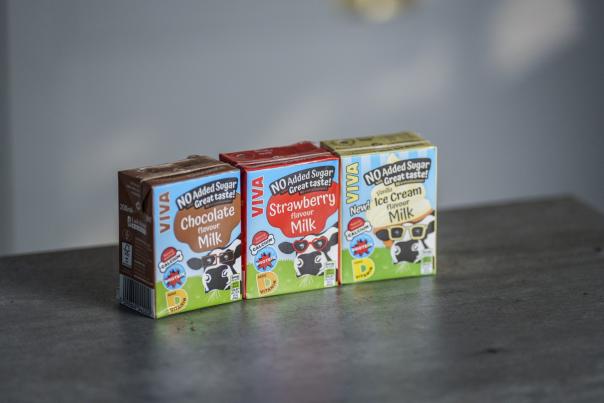
The survey, conducted on 1,000 parents in the UK, has found that over half (56%) expressed concerns that their children are not receiving adequate nutrition from school provisions. Almost everyone surveyed (99%) believes their children would perform better academically if they were properly hydrated and nourished.
The report emphasises that whilst there has been significant focus on school food and its contribution to good nutrition and the impact this has on concentration and learning, the provision of drinks has been overlooked.
Donal Harte, head of marketing at Lakeland Dairies and VIVA, said: "School caterers play a crucial part when it comes to students accessing nutritionally sound food and drink options and really do hold the power to make the right decisions, but they need support doing this.
“Our report not only addresses the concerns of parents, but also provides actionable insights for caterers to enhance school menus and educate students and their parents about what good decisions look like. Drinks provision in schools is just as important as food provision and shouldn’t be overlooked as a viable way to improve children’s access to nutritionally sound choices.”
Nearly half (48%) of parents report struggling to align healthy nutrition in schools with what their children actually want to eat and drink. A third (33%) of parents expressed concern about lack of control and not knowing and fully understanding what their children eat when they are at school.
Parents suggest that 64% of children aren’t drinking milk in schools, so are missing out on many essential nutrients needed for their bodies and minds. Over half (52%) suggested this is because milk is not available to them in school and 27% said it was because they don’t like the taste.
Almost eight in ten (79%) parents said they thought their child would drink flavoured milk as an alternative to plain milk if offered it, suggesting a range of milk-based drinks could play more of a role in all-round nutrition.
The report emphasises the critical role schools play in educating students about healthy food choices, with nearly half (49%) of parents expressing that schools should enhance their efforts in this area and 43% suggesting schools should exclusively offer healthy options only.
The report, which can be viewed here, includes:
- Reflections from independent registered dietitian Juliette Kellow
- Sections on the challenges faced by school caterers
- A breakdown of common myths surrounding milk
- Information about permitted drinks in schools
- The key nutrition benefits of milk
- Innovative ideas for engaging students in learning about nutrition, with a dedicated print-out lesson plan.
- Insights into how flavoured milk can be effectively integrated into school menus to help caterers meet both nutritional standards and students' preferences
Kellow added: “Water is the gold standard for hydration, but drinks that provide both fluid and nutrients – like milk – can play a key role in keeping students hydrated and nourished.
“This survey confirms three quarters (75%) of parents know milk contains calcium, important for bone growth and development. But fewer recognised it provides protein (27%) for muscles or vitamin B12 (26%) for the immune system. Even fewer, just 3%, are aware milk supplies iodine, a nutrient that’s vital for growth and mental processes such as learning, concentrating, remembering, reasoning, thinking and solving problems.
“This is concerning as the National Diet and Nutrition Survey shows almost a quarter (24%) of 11-18 year-olds have very low iodine intakes, so are at risk of a deficiency. Flavoured milks made from milk and without added sugars provide a nutritious alternative for students who choose not to drink, or don’t have access to, plain milk at school.”